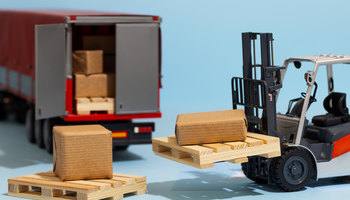How Semi-Skilled Immigrants Can Thrive in Dresden’s Job Market

Dresden’s history, diverse cultural heritage, and historical monuments have led to its reputation as a city of culture and the arts. However, Dresden is not only known for its historical importance and art; in the past years, It has also become an essential center of employment opportunities.
Finding a job can be challenging for a semi-qualified emigrant in Dresden’s job market. Despite the competition, semi-skilled immigrants in Dresden can improve their chances of finding a job if they follow the correct strategy. Below is a guide that helps semi-skilled immigrants thrive in Dresden's job market.
Understanding Dresden’s Job Market for Immigrants
First, it’s helpful to have an idea of the Dresden job market for immigrants: the city has a mixed industrial base, ranging from technological to manufacturing retail services, so the chances of finding a job can be higher for highly skilled professionals, but not only them. Semi-skilled workers can also find advantageous jobs, especially if they desire to utilize practical skills.
- Learn the Language
Language skills are a determining factor in getting a job in Dresden. Many companies in Dresden work internationally, and English is often spoken, but learning German is essential to widen your options. Almost all local businesses expect employees to say at least essential German. There are many language courses in the city, and learning German here is a good investment of time, as it will seriously increase your chances of getting a job. Plus, speaking German makes life in general easier.
- Leverage Job Search Resources
Dresden has many resources for finding a job as an immigrant. The Federal Employment Agency offers information and support for immigrants finding jobs in Dresden. Job listings for semi-skilled immigrant workers are also available online through Moovick’s handyman services, which connect employers with workers. Networking can also be beneficial for finding openings. Local connections give you the scoop on positions that might not be widely advertised.
- Tailor Your Application to the Job Market
Ensure your résumé and cover letter are tailored to the local expectations. Applications in Germany usually include a photo, a detailed description of work experience, and references. Be sure to highlight any qualifications or experience that make you stand out. It doesn’t matter if your skills are not directly transferable to the position you are applying for, but make it clear how your experience will benefit the company. Many companies in Dresden are willing to train semi-skilled immigrants if the newcomers show enthusiasm and willingness to get the job done.

- Make Use of Training Opportunities
There are often further training possibilities for immigrants in the Dresden employment market. Many companies offer apprenticeships and on-the-job programs to help boost your skills. After attending training sessions, it is possible to move up more. Government programs and NGOs also train immigrants in the local labor market.
- Be Patient and Persistent
There is a lot of work, but finding jobs for immigrants in Dresden can take a while. You have to be patient and keep applying. You must look at the job ads and keep filling out the applications. The competition can be challenging. But if you focus and look for opportunities to get a job, after a while, you will probably get an offer. Because it can take a while, it can be discouraging when you aren’t accepted for a job. Keep going! After a few interviews or applications, it will get easier.
To Wrap It Up
When it comes to the labor market for immigrants in Dresden, the situation is challenging, but semi-skilled immigrants in Dresden have a real opportunity to make it if they work at it. Learning the language, tapping into local resources, tailoring applications to the different labor markets, and taking advantage of training opportunities all go a long way in helping you on your way. With time and patience, you'll find a job on Moovick - your number platform for connecting to service providers.
FAQ

1. What are some lesser-known industries in Dresden where semi-skilled immigrants can find employment?
In addition to popular sectors like hospitality and construction, semi-skilled immigrants in Dresden can explore industries such as logistics, elderly care, and food processing. These industries often require practical skills and regularly seek workers for hands-on roles.
2. How can semi-skilled immigrants in Dresden network effectively with local professionals despite language barriers?
Semi-skilled immigrants can join local professional groups and attend job fairs where English is commonly spoken. Online platforms like LinkedIn, community events, and expat groups can be valuable for building a network. Volunteering or participating in local cultural activities is also an excellent way to meet people, improve language skills, and connect with potential employers.
3. Are there specific government programs in Dresden that support semi-skilled immigrants in gaining local work experience?
Yes, Dresden offers several government-backed programs aimed at helping immigrants integrate into the job market. The Federal Employment Agency provides vocational training and support for immigrants looking to enter semi-skilled jobs.
4. How do cultural differences impact the job application process for semi-skilled immigrants in Dresden?
Cultural differences can play a significant role in the job application process. In Germany, applications are formal and detailed, often requiring a photo, work references, and an extended CV. Additionally, German employers may expect a more direct and structured communication style. Immigrants may need to adjust their applications to fit these local standards while ensuring they highlight their unique experiences.
5. What are the most common challenges semi-skilled immigrants face after securing a job in Dresden, and how can they overcome them?
Common challenges include adapting to the work culture, overcoming language barriers, and adjusting to the formalities of the German workplace. To overcome these, semi-skilled immigrants should continue improving their German skills, seek mentorship from colleagues, and remain open to learning about workplace expectations.
Popular Articles

5 Unexpected Benefits of Hiring a Handyman for Your Office Renovati...

Boost Your Income in Rotterdam: Side Hustles and Part-Time Gigs

Streamlining Furniture Logistics: Moovick's Expertise in Seamless D...

8 Challenges in B2B Logistics and How Moovick Solves Them

Best materials for flooring in your home

Your Logistics Company: How Moovick Can Be Your Strategic Partner

